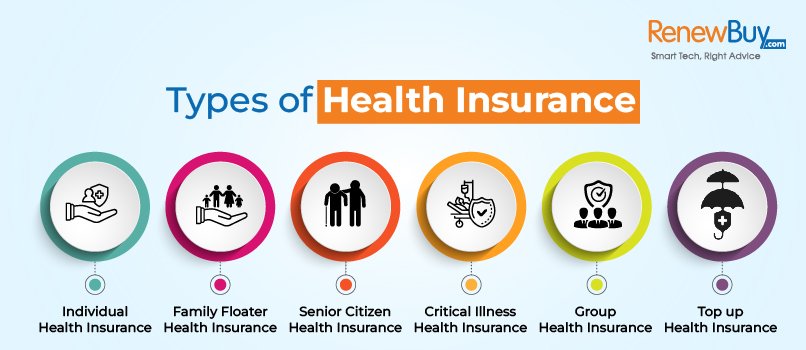In a world where staying healthy is important, let’s talk about something that helps us do just that – health insurance. So, what is health insurance?
It’s like a safety net for your health. This blog post will explain what health insurance is all about in simple terms.
We’ll cover things like how much you pay, what it covers, and why it’s important.
So, if you’re curious about how to take care of yourself and your wallet, keep reading to learn the basics of health insurance.
What Is Health Insurance?
Health insurance is like a friend that helps you when you’re not feeling well. It’s a special plan you pay for to ensure you can go to the doctor or get medicine without worrying too much about money.
Here’s how it works: you pay a little bit of money regularly (called a premium), and if you get sick or need to see a doctor, the insurance helps cover the costs.
Sometimes, you might need to pay a small amount first (called a deductible), but then the insurance takes care of the rest.
It’s like having a safety shield for your health, making sure you can get the care you need without too much stress on your wallet.
Must Read: Know the Importance of Health Insurance
Types of Health Insurance Policies
Health insurance comes in different types to suit various needs. Understanding these types can help you choose the one that fits you best. Here are some common types:

1. Health Maintenance Organization (HMO):
- You pick a primary doctor from a list and need referrals to see specialists.
- Usually, more affordable, but limited to a network of healthcare providers.
2. Preferred Provider Organization (PPO):
- Offers more flexibility in choosing doctors and specialists without referrals.
- You pay less if you use doctors in the plan’s network.
3. Exclusive Provider Organization (EPO):
- A mix of HMO and PPO, requiring you to stick to the network but without needing referrals.
4. Point of Service (POS):
- Requires a primary doctor but allows out-of-network visits at a higher cost.
- Combines features of HMO and PPO plans.
5. High-Deductible Health Plan (HDHP):
- Lower premiums but higher deductibles.
- Often paired with Health Savings Accounts (HSAs) for tax benefits.
6. Catastrophic Health Insurance:
- For young and healthy individuals.
- Covers essential health benefits after a high deductible is met.
Understanding these types helps you make an informed choice based on your health needs and budget.
Must Read: How to Choose the Best Term Life Insurance?
Top Benefits of Health Insurance
Purchasing health insurance is crucial for several reasons. Let’s take a look at the most important benefits of our health insurance policies:

1. Financial Protection:
Health insurance acts as a financial safety net, shielding you from the potentially exorbitant costs associated with medical treatments and hospital stays. This security is especially crucial during unexpected health crises.
2. Access to Quality Care:
With health insurance, you gain access to a network of healthcare professionals, including doctors, specialists, and hospitals.
This network ensures that you receive timely and high-quality medical care when needed.
3. Preventive Services:
Health insurance often covers a range of preventive services, such as vaccinations, screenings, and check-ups.
These services play a vital role in the early detection and prevention of illnesses, promoting long-term health.
4. Reduced Out-of-Pocket Expenses:
One of the key advantages of health insurance is its ability to alleviate the financial burden on individuals.
By covering a significant portion of medical expenses, including doctor visits, medications, and hospital stays, it helps reduce out-of-pocket costs for policyholders.
5. Peace of Mind:
The assurance that comes with health insurance is priceless. Knowing that you have coverage for medical expenses provides peace of mind, allowing you to focus on your health without the constant worry of financial strain.
6. Health and Wellness Programs:
Some health insurance plans offer additional benefits beyond medical coverage.
These may include wellness programs, fitness incentives, and discounts on health-related services, encouraging policyholders to adopt and maintain a healthy lifestyle.
7. Emergency Coverage:
Health emergencies can happen unexpectedly. Health insurance ensures that you receive prompt medical attention during emergencies, and the associated costs are taken care of, preventing delays in seeking necessary care.
8. Prescription Medication Coverage:
Many health insurance plans include coverage for prescription medications. This helps make essential drugs more affordable, ensuring that individuals can access necessary treatments without facing prohibitively high costs.
9. Maternity and Family Planning Support:
Health insurance often covers maternity care, childbirth, and family planning services. This support is crucial for families, providing financial assistance during significant life stages.
10. Network Discounts:
Health insurance plans negotiate discounted rates with healthcare providers in their network. This results in lower costs for medical services, contributing to overall savings for policyholders.
In summary, health insurance offers a comprehensive set of benefits, ranging from financial security to access to preventive care and additional wellness perks, ultimately promoting a healthier and more secure lifestyle.
Why Should I Have A Health Insurance Policy?
1. Financial Security: Protects you from high medical costs, ensuring you don’t face a significant financial burden during health emergencies.
2. Access to Quality Healthcare: Provides access to a network of doctors, specialists, and hospitals, ensuring timely and quality medical care.
3. Preventive Services: Covers preventive care, such as vaccinations and screenings, promoting early detection and disease prevention.
4. Reduced Out-of-Pocket Expenses: Lowers the amount you need to pay for medical services, including doctor visits, medications, and hospital stays.
5. Peace of Mind: Offers peace of mind, knowing you have coverage for unexpected health issues and won’t be overwhelmed by immediate costs.
6. Emergency Coverage: Supports you during emergencies, ensuring prompt medical attention without the worry of immediate financial strain.
7. Prescription Medication Benefits: Includes coverage for prescribed medications, making essential drugs more affordable and accessible.
How Health Insurance Works?
Understanding how health insurance works is essential for making informed decisions about your well-being. Here’s a simplified breakdown:
- Enrollment:
- You sign up for a health insurance plan, either through your employer, government programs, or private providers.
- Premiums:
- You pay a regular fee (premium) to the insurance company to keep your coverage active, regardless of whether you use medical services.
- Deductibles:
- Before insurance kicks in, you may have to pay a certain amount out of pocket (deductible) each year. This is your initial financial responsibility.
- Co-payments and Co-insurance:
- After meeting the deductible, you might still share costs with the insurance company through co-payments (fixed amounts) or co-insurance (percentage of expenses).
- Networks:
- Health insurance plans often have networks of preferred doctors and hospitals. Staying within this network can save you money, but going outside may result in higher costs.
- Coverage Limits:
- Some plans have limits on certain benefits or services. Understanding these limits ensures you’re aware of potential out-of-pocket expenses.
- Claim Submission:
- When you receive medical care, your healthcare provider submits a claim to the insurance company, detailing the services provided.
- Adjudication:
- The insurance company reviews the claim, applies the terms of your policy, and determines how much they’ll cover.
- Explanation of Benefits (EOB):
- You receive an EOB explaining what the insurance covers and any remaining costs you’re responsible for.
- Out-of-Pocket Maximum:
- There’s a cap on how much you have to pay in a year (out-of-pocket maximum). Once reached, the insurance covers all eligible expenses.
- Renewal and Changes:
- Your health insurance plan usually renews annually. During open enrollment, you can make changes to your coverage if needed.
By grasping these basic steps, you can navigate the world of health insurance more confidently and make the most of your coverage when you need it.
Factor Consider Before Choosing Right Health Insurance
Certainly! Choosing the right health insurance requires a detailed assessment of various factors. Here’s an in-depth exploration:
1. Coverage Needs:
- Medical History: Consider your health history and any ongoing medical conditions. If you have specific health needs or anticipate certain medical treatments, choose a plan that covers those services adequately.
- Prescription Medications: Check if the plan includes coverage for prescription drugs and whether it covers medications you currently take or may need in the future.
2. Type of Plan:
- HMO (Health Maintenance Organization): Offers lower premiums and requires choosing a primary care physician (PCP). Specialist visits typically need referrals.
- PPO (Preferred Provider Organization): Provides more flexibility in choosing healthcare providers and specialists without needing referrals, but usually comes with higher premiums.
- EPO (Exclusive Provider Organization): Combines features of HMO and PPO, requiring you to stay within the network but without needing referrals.
- POS (Point of Service): Requires a primary care physician but allows out-of-network visits at a higher cost. Combines features of HMO and PPO plans.
3. Premiums and Affordability:
- Monthly Premiums: Evaluate the monthly premium you’ll be paying. While lower premiums may be attractive, consider the trade-off in terms of higher deductibles and co-payments.
- Out-of-Pocket Costs: Factor in potential out-of-pocket expenses, including deductibles, co-payments, and co-insurance. Choose a balance that suits your financial situation.
4. Deductibles and Co-payments:
- Deductibles: Understand the amount you must pay out of pocket before the insurance coverage starts. Higher deductibles often mean lower premiums, but be mindful of your ability to cover this initial cost.
- Co-payments and Co-insurance: Consider the fixed amounts (co-payments) or percentages (co-insurance) you’ll be responsible for after meeting the deductible.
5. Network of Providers:
- In-Network vs. Out-of-Network: Check the network of healthcare providers associated with the plan. Staying in-network typically results in lower costs, while going out-of-network may lead to higher expenses.
- Coverage Area: If you frequently travel or live in different locations, ensure the plan’s network covers healthcare services where you need them.
6. Coverage Limits:
- Maximum Limits: Be aware of any coverage limits on specific benefits or services. Understanding these limits prevents surprises and helps you plan for potential out-of-pocket expenses.
7. Additional Benefits:
- Wellness Programs: Some plans offer wellness benefits, such as gym discounts or preventive care incentives. Evaluate these additional perks based on your lifestyle.
8. Customer Reviews and Ratings:
- Provider Reputation: Research and consider the reputation of the insurance provider. Read customer reviews and ratings to gain insights into customer satisfaction and the ease of claims processing.
9. Policy Exclusions and Limitations:
- Read the Fine Print: Carefully review the policy documents for exclusions and limitations. Understand what is not covered by the insurance to avoid surprises when seeking medical care.
10. Renewal and Changes:
- Annual Review: Health needs may change, so review your health insurance annually during open enrollment. Consider any changes in coverage needs, family status, or financial situation.
By thoroughly considering these factors, you can make an informed decision and choose a health insurance plan that aligns with your health needs, financial capacity, and lifestyle.
Conclusion
In conclusion, selecting the right health insurance involves a careful balance of coverage needs, financial considerations, and plan types.
Assessing your requirements, understanding the terms of the policy, and considering affordability are key to making an informed decision.
Regularly reviewing your health insurance ensures it continues to meet your evolving needs, providing the peace of mind that comes with comprehensive and suitable coverage.
👇 Past this link in Google 👇
https://cutt.ly/2wVNa3eR